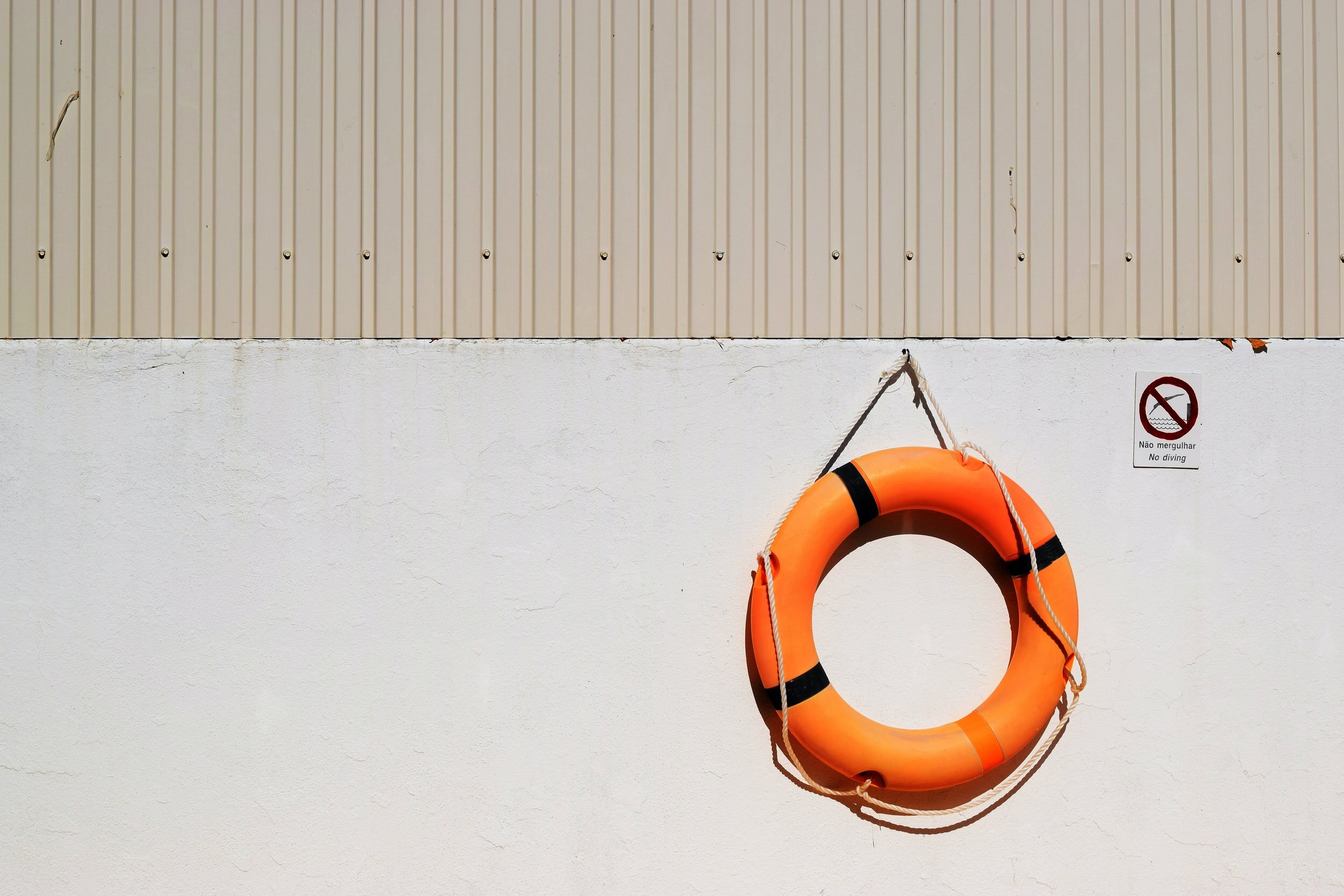
Mental Health
Mental and emotional health are like a tag team; mental health is your ability to process information and emotional health is the way you express how you feel about that information. Together they help us manage our life experiences.
Sometimes life can give you difficult things to process and this can make you feel sad, lonely, upset, angry, naughty, unable to cope, anxious, or depressed.
Sometimes life can give you difficult things to process and this can make you feel sad, lonely, upset, angry, naughty, unable to cope, anxious, or depressed.
Everyone has different life experiences so you can’t compare the way you react to a situation to the way someone else does.

RESILIENCE
A word people use now to talk about how well we manage these feelings is ‘resilience’, and there are lots of things that you, your family/carers, friends, school and community can do to help increase your resilience.
These things include:
Helping you feel safe
Eating well
Sleeping enough
Talking to people
Helping you to express your feelings
Supporting you in school/college/work
Enjoying hobbies, sports, social activities
Knowing and understanding yourself and how you identify in the world
Create positive experiences and remember them
We All Have Mental Health is an animation from Anna Freud NCCF designed to give young people aged 11-14 a common language and understanding of what we mean by mental health and how we can look after it.
There are many reasons why someone may experience periods of poor emotional health. Its’ normal to have a wide range of emotions and it is important to recognise how you are feeling.
You may feel anxious, stressed, scared, nervous, afraid, jittery, lonely, tired all the time, crying often, sick, angry, panicky, overwhelmed, lacking focus or overthinking.

Not sure if you or someone you know is living with mental health problems? Experiencing one or more of the following feelings or behaviours can be an early warning sign of a problem:
Pulling away from people and usual activities
Having low or no energy
Feeling numb or like nothing matters
Having unexplained aches and pains
Feeling helpless or hopeless
Smoking, drinking, or using drugs more than usual
Feeling unusually confused, forgetful, on edge, angry, upset, worried, or scared
Yelling or fighting with family and friends
Experiencing severe mood swings that cause problems in relationships
Having persistent thoughts and memories you can’t get out of your head
Hearing voices or believing things that are not true
Thinking of harming yourself or others
Inability to perform daily tasks like taking care of yourself or getting school
Eating or sleeping too much or too little

MANAGING EMOTIONS
Normal Emotions
We all experience a range of emotions but sometimes things might happen that means we might not be able to deal with these very well. For example: someone dying, difficulties at home or friendship breakdown. This is ok and perfectly normal.
When are they not OK?
When your emotions affect you on a daily basis and affects school, family, friends, social life and stops you from doing things, it can become a problem.
Unhealthy ways of expressing your emotions
Downers – focus only on negative things, overlooking or dismissing positives (negative glasses)
Self-harming
Misusing drugs and alcohol
Fighting – getting into trouble etc
Feeling thoughts - strong emotions cloud how we think and see things
Blaming me or others for my problems
We all express our emotions in different ways some are better than others
What can we do to manage our emotional health and wellbeing?
Take a time-out. Do some yoga, listen to music, meditate, read or learn relaxation techniques. Stepping back from the problem helps clear your head.
Eat well-balanced meals. Do not skip any meals. Keep healthy, energy-boosting snacks on hand.
Get enough sleep. When stressed, your body needs additional sleep and rest.
Exercise daily to help you feel good and maintain your health.
BREATHE! Take deep breaths. Inhale and exhale slowly. IN for 3, HOLD for 3 and OUT for 3.
Count to 10 slowly. Repeat, and count to 20 if necessary.
Do your best. Instead of aiming for perfection, which is not possible, be proud of however close you get.
Accept that you cannot control everything. Put your stress in perspective: Is it as bad as you think?
Welcome humour. A good laugh goes a long way.
Maintain a positive attitude. Try to replace negative thoughts with positive ones.
Get involved. Volunteer or find another way to be active in your community, which creates a support network and gives you a break from everyday stress.
Talk to someone. Tell friends and family you’re feeling overwhelmed and let them know how they can help you.
Reframing Stress
This video mentions a free experience that is no longer available. Please visit headspace.com for current free trials and available discounts.
Take ten minutes to focus your mind on the breath in this mini reframing stress meditation. Stress takes on many forms, especially when a day has felt particularly challenging. Nothing can change the circumstances, but this exercise teaches you how to notice what you're holding onto and how to drop the preoccupying storyline, allowing you to reframe stressful situations.
If none of these things help you it may be a good idea to talk to a professional. There are so many people you can talk to about your how you are feeling. It does not have to be a big deal or drama. You can talk to your HSIS School Youth Worker confidentially, your teachers, mentors, school nurses. You can even contact a help line like Wirral Young person’s helpline, and they will help you to access the correct support or services.
Time to Tackle Loneliness
Loneliness is an emotion we have when we feel alone. Weirdly you can feel lonely even if you are with loads of people. Loneliness is horrible.
Even though we have lots of technology (which helps us to stay in touch), the feeling of loneliness for young people is getting more common. It seems that lots of young people experience feeling lonely and isolated.
Covid -19 didn’t help. Not only were people feeling emotionally isolated, but we were also physically isolated from our friends and extended families. Some young people liked being at home, but for others it was depressing, stressful and even dangerous.
People say that teenagers today lack the closeness of face-to-face contact. Like when you are all sat in a room together but are all talking through your devices rather than giving eye contact and using your voices. This could be a factor that makes you feel more lonely and maybe low or depressed.
Interactive human communication skills help our brains to process our environment and work out if we are safe or in danger. If we are always staring at our screens we are less aware of what is going on around us. If we are constantly comparing our lives to people on social media we can have FOMO leading to low mood and isolation. All these things can increase feelings of loneliness.
Things we know can make you feel lonely: -
1. Feeling too shy and introverted to connect with others
2. Not feeling confident to talk to people
3. Saying you don’t really feel like you need friends (even though you might really)
4. Feeling like friendships are too much work or you are too busy to make new friends
5. Not knowing other people you can be your true self with (for example if you are disabled, or LGBTQ+ or into D&D – or all of those things!) Sometimes you just need to find your tribe.
6. Starting a new school or moving house – feeling like everybody has set friendships already.
7. Not having youth clubs to go to, or jobs being harder to get than in the past
8. Feeling like nobody likes you or want to be your friend
Feeling lonely is horrible. It can make you feel alone, unsupported, unconnected, or maybe even un-loveable. You might think it’s your fault, or that nobody will ever like you. This is not true. The good news is there are places you can go to meet new people and to make new friends. If you feel lonely it can seem like everyone is against you, that no-one understands you, that no-one like you. But this can change.
There are things you can do!
Spend less time on social media and do something else instead – (in just 3 weeks you can significantly reduce your feelings of loneliness and low mood).
Try a new activity, find a new hobby or go to a youth club or after school club – look on Zillo for places to go.
Make a list of things you want from a friendship and try and work on those things in yourself – like kindness or being truthful or funny!
Tell a trusted adult how you feel.
Find a counsellor or youth worker and ask for some help.
Be brave.
Be kind to yourself.
Remember there are other people who feel lonely too – it’s not just you.
Remember you won’t always feel lonely
There is loads of support available to help you if you are suffering from loneliness so don’t suffer in silence. You have HSIS Youth Workers in you school, and support is available daily at Cafe Create. Or to find out about the other wide range of support available visit the HUB.

GETTING HELP
Further Support
Health Services in Schools Youth Workers
HSIS Youth Workers are a team of professionally qualified youth workers. The team currently work in Wirral Secondary Schools, Wirral Six Form and Wirral Met College.
Each school/college has a designated HSIS Youth Worker that provides young people with an opportunity to access confidential support on any issues which may be affecting them.
We provide support to young people around Building Resilience, Reducing risks, Relationships, Sexual Health (including issuing condoms in some schools) Drugs, Alcohol, Emotional Health and Well-Being, Stress and Anxiety.
To get support in school/ college contact your school pastoral lead of head of year.
Download a copy of our latest timetable
Response Counselling Service
The Response counselling service works with young people aged 13-18. It is a free confidential service working with young people with moderate to severe issues which include suicide ideation, self harming, depression, high levels of anxiety bereavement etc.
We also work with the Response Alcohol and drugs team as many referral come for both services. Our work is separate from but alongside CAMHS, sharing risk between the 2 services. The referral system is usually by filling in a referral form and sending it by email unless it’s a parent referring and we can take it over the phone. We can only accept referral if it’s with the consent of the young person.
If a young person mentioned suicide then it’s fine for a worker to talk with them but it does need referring on, talking about suicide will never increase the risk of a young person taking their own life.
Self harm can include many ways , it is a physical way of dealing with an emotion. Again it needs referring on as stopping a young person from harming themselves isn’t going to deal with why they are having to do it.
Response coordinator 01516664123/3783 email barrymarsden@wirral.gov.uk
Emergency-ring 999
BRANCH
Branch is an online mental wellbeing hub for children and young people in Wirral, from 0 all the way to 18 (and up to 25 with additional needs). It doesn’t deliver services directly – it’s more of a guide, helping people to find the best tools and local support.
It can be used for any child or young person, no matter how big or small their worries feel. It’s packed with tips to help them feel better and, when they need a bit of extra support, gives simple routes into local services.
Branch doesn’t offer crisis support but has information on where to get help in an emergency.
Visit www.branch-wirral.co.uk
hatch
hatch is here to make sure that you have emotional wellbeing support.
Much of the time we are not born with the innate ability to cope with these things on our own.
This is where we can help. hatch provide 1-1 sessions to help develop a range of skills and strategies that can have a positive impact on your mental health and wellbeing. Our volunteer mentors support you to complete a computerised CBT skills intervention called Bazaar -that explores which things work best for you. CBT stands for Cognitive Behavioural Therapy, which sounds pretty intimidating. What it actually means is learning a way of thinking that helps us face tough times in a positive way.
hatch support Wirral Young People aged 11 -16yrs
To get in touch about accessing hatch please head to our website and complete a referral form via our 'Get in touch' page.
Access is free and immediate.
Twitter: @hatchmerseyside
Instagram: @hatchmerseyside
Website: hatchmerseyside.co.uk
OPEN DOOR CENTRE
If you are aged 17 - 30, you can become a member and then access as many of our services as you like, including Creative Therapeutic Support if you are feeling down, low, stressed or anxious, numerous different activities within music and the arts, unique training and volunteering opportunities and much more. Membership is free, with no waiting lists.
NHS 111 mental health option - for urgent support
24/7 All age crisis line
Please call NHS 111, select the mental health option and dedicated local staff will support you to access the help you need. The phone line is open 24 hours a day, seven days a week and is open to people of all ages, including children and young people. Parents and carers can also call the crisis line if they are worried about a young person who is experiencing a mental health crisis.
This is a new service and to ease the transition - those people who call our old mental health crisis line number, 0800 145 6485 will still get through to our team.
Action for Children (Counselling)
Best start in life
We know how important the early years are - and we’re here to help. From parenting advice to education and early intervention, we focus on improving children’s life chances.
Good mental health
Everyone has ups and downs in life. Our mental and emotional well-being experts work with families and schools to make sure children and parents feel able to cope with challenges when they arise.
A safe and loving home
We make sure more children feel part of a family that cares for them. We find homes for those without, protect children who have been abused or neglected, and help ensure young carers don’t miss out on a childhood.
KOOTH (Online counselling)
Free, safe and anonymous online support for young people
Monday – Friday 12pm – 10pm
Saturday – Sunday 6pm – 10pm
SHOUT
Shout is an affiliate of Crisis Text Line® in the UK that provides free, confidential support, 24/7 via text. It’s the first free 24/7 texting service in the UK for anyone in crisis anytime, anywhere. Shout is available in England, Scotland, Wales, and Northern Ireland
Text SHOUT to 85258 in the UK to text with a trained Crisis Volunteer
Every texter is connected with a real-life human being trained to bring people from a hot moment to a cool calm place through active listening and collaborative problem-solving. All of our Crisis Volunteers donate their time to helping people in crisis.
Anxiety UK
Provides information, support and advice for anyone struggling with anxiety.
Live chat service available.
Phone: 03444 775 774
Text: 07537 416 905
Email: support@anxietyuk.org.uk
Opening times: 9.30am-5.30pm, Monday-Friday
No Panic
Supports people struggling with panic attacks, obsessive compulsive disorder (OCD), phobias and other anxiety-related issues related - and provides support and information for their carers.
Offers a specialist youth helpline for people aged 13-20. The opening hours are 3pm - 6pm, Monday - Friday; 6pm - 8pm, Thursdays and Saturdays.
Call 01952 680835 for a recorded breathing exercise to help you through a panic attack (available 24/7).
Information about call costs here.
Phone: 0300 7729844
Phone: 0330 606 1174 (Youth helpline)
Email: sarah@nopanic.org.uk
Opening times: 10am - 10pm, 365 days a year
OCD Action
Offers support and information to anybody affected by obsessive compulsive disorder (OCD).
Website provides information and advice to help you access treatment.
Phone: 0300 636 5478
Email: support@ocdaction.org.uk
Email: youthhelpline@ocdaction.org.uk
Opening times: 9:30am - 8pm, Monday - Friday
The Mix
Offers support to anyone under 25 about anything that’s troubling them.
Email support available via their online contact form.
Free 1-2-1 webchat service available.
Free short-term counselling service available.
Phone: 0808 808 4994
Opening times: 4pm - 11pm, seven days a week
Childline
If you’re under 19 you can confidentially call, chat online or email about any problem big or small.
Sign up for a free Childline locker (real name or email address not needed) to use their free 1-2-1 counsellor chat and email support service.
Can provide a BSL interpreter if you are deaf or hearing-impaired.
Hosts online message boards where you can share your experiences, have fun and get support from other young people in similar situations.
Phone: 0800 1111
Opening times: 9am - midnight, 365 days a year
YoungMinds Crisis Messenger
Provides free, 24/7 text support for young people across the UK experiencing a mental health crisis.
All texts are answered by trained volunteers, with support from experienced clinical supervisors.
Texts are free from EE, O2, Vodafone, 3, Virgin Mobile, BT Mobile, GiffGaff, Tesco Mobile and Telecom Plus.
Texts can be anonymous, but if the volunteer believes you are at immediate risk of harm, they may share your details with people who can provide support.
Text: YM to 85258
Opening times: 24/7

